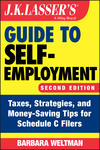When Can You Expect Your Tax Refund?
Uncle Sam owes you money because you overpaid your federal income taxes. When will you receive your tax refund? It depends on how you filed your return and how you told the IRS to send your refund.
Filing Method
If you file a complete and accurate paper tax return, your refund will be issued within 6 weeks from the received date. You may receive it sooner than 6 weeks. Usually, you do not receive any interest on a tax refund. However, if you filed your return on or before April 15 and you receive the refund more than 45 days after May 31, 2009, the IRS will pay interest on the refund.
If you filed electronically, refund checks usually are issued within 3 weeks after date that the IRS acknowledges receipt of your return.
Refunds from amended returns will be issued within 8 to 12 weeks.
Refund Method
There are two ways to receive a tax refund: A paper check from the U.S. Treasury or an electronic transfer to your account (“direct deposit”) if you provide the account’s routing number and account number you want the refund to be deposited into.
You can have funds deposited into your bank account, IRA, health savings account, or Coverdell education savings account. If you want your refund split among two or more accounts, you have to complete Form 8888, Direct Deposit of Refunds to More than One Account. Make sure your financial institution will accept these deposits before you authorize the IRS to make them.
Check on Your Refund
Within 72 hours after e-filing your return or 3 or 4 weeks after mailing in a paper return, you can check the status of your refund online at Where’s My Refund? or call the IRS Refund Hotline at 800-829-1954. To do so, you need to provide the following information:
- Your Social Security number
- Your filing status (single, married filing jointly, married filing separately, head of household, or qualifying widow(er))
- The exact whole dollar amount of your refund
If you don’t receive your refund within 28 days from the original IRS mailing date shown on Where’s My Refund?, you can then start a refund trace online.
Looking Ahead
Instead of waiting to receive a tax refund, which really amounts to an interest-free loan to the federal government, why not have the use of your money throughout the year? Adjust your wage withholding and estimated taxes to reduce tax payments and reduce next year’s tax refund accordingly.
Health reimbursement arrangement (HRA)
Employer established account that provides tax-free reimbursements to employees for deductibles and other expenses that could be taken as itemized deductions.



